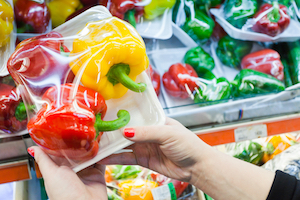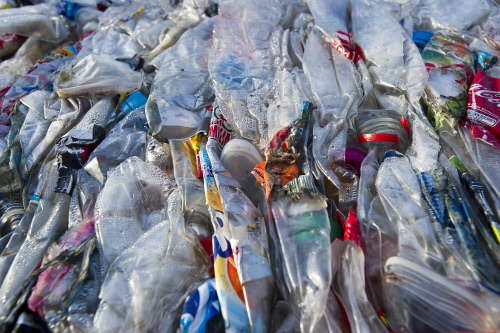Councils in Scotland are to dramatically reorganise their recycling schemes by targeting materials that cause the most damage to the climate, such as food waste, textiles and plastics.

From 2013, councils and householders will be asked to recycle far more of the waste that has a “high carbon impact” and is more environmentally damaging, under a new “carbon metric”. Materials with lower carbon benefits from recycling, such as paper, will become less important.
Described by the government agency Zero Waste Scotland as a world first, the initiative will replace the traditional but cruder measure for recycling schemes used across Europe, which focus on weight.
Councils will now be expected to factor in the carbon emissions involved in the production of each type of waste and the climate benefits from recycling that material, measured against sending them to landfill.
Iain Gulland, the director of Zero Waste Scotland, said this new system was “the next leap” in recycling and that using tonnage was not as environmentally sensitive and sustainable as it should be.
“This is where Scotland is going to lead,” he said. “It’s all about climate change. It’s not just tonnes and the cost of travel from A to B, it’s the environmental impact.”
Wasted food has emerged as a significant issue in Scotland. A report published on Tuesday by WWF Scotland and the recycling group Wrap found that Scots threw out 570,000 tonnes of food and drink waste every year – the equivalent of 3% of Scotland’s domestic CO2 emissions or CO2 emissions from 600,000 cars.
The new system is also designed to put greater priority on “closed loop” recycling, where waste can be reused or recycled into the same material . Instead of waste glass being used as aggregate for building or insulation, this system would push for it to be recycled into glass.
In common with other parts of the UK and the European Union, the Scottish government has promised to achieve 75% recycling of waste by 2025 with a goal of eventually achieving “zero waste”.
Despite its pride at being first to use a “carbon metric” system, Scotland has a relatively poor record on household recycling, particularly when measured against their English counterparts.
The latest figures from the Scottish Environment Protection Agency (Sepa) show that in 2009-10, councils recycled or composted just 35.1% of their waste, although that rose to 37.2% in June 2010.
Comparable English figures from the Department of the Environment, Food and Rural Affairs show more than 40% of household waste was recycled in the year ending June 2010.
Significant councils such as City of Edinburgh have yet to introduce doorstep food waste recycling and only began doorstep plastic bottles recycling earlier this year, some four years after less well-off councils in central London, such as Hackney, began doing so.
Juliet Swann, campaigns director for Friends of the Earth Scotland, said that although the ideal was to prevent waste in the first place, the carbon metric was a good proposal, if complicated to implement. “Scotland’s main problem with waste has always been the variability of the services – which is down to individual local authorities,” she said.
Source : www.guardian.co.uk








